The Best 1990s Bassists Of All Time Ranked
Electric bassists play the bass guitar. In most rock, pop, metal and country genres, the bass line outlines the harmony of the music being performed, while simultaneously indicating the rhythmic pulse. In addition, there are many different standard bass line types for different genres and types of song (e.g. blues ballad, fast swing, etc.). Bass lines often emphasize the root note, with a secondary role for the third, and fifth of each chord being used in a given song. In addition, pedal tones (repeated or sustained single notes), ostinatos, and bass riffs are also used as bass lines. While most electric bass players rarely play chords (three or more notes all sounded at the same time), chords are used in some styles, especially funk, R&B, soul music, jazz, Latin and heavy metal music. Here are the best 1990s Bassists ranked.
See more: The Best Blues Rock Drummers Of All Time Ranked
See more: The Best Blues Rock Bassist Of All Time Ranked
11. Stuart Hamm
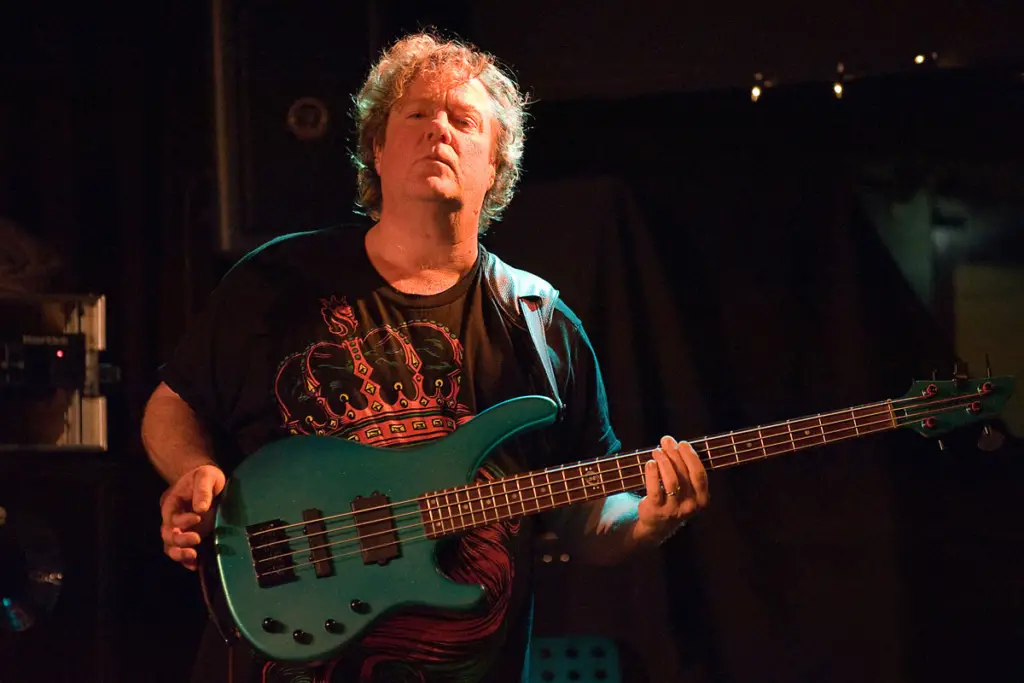
“In the 90s, the sound of his bass can be heard on some of the biggest instrumental rock hits of the decade. This is because he worked with two of the biggest names in the genre, Joe Satriani and Steve Vai on multiple occasions. As a session musician, he was great at adapting his playstyle to different songs. What made him special though, is that he didn`t shy away from adding melody or playing pronounced slap lines.”
10. Robert DeLeo

“His bass Lines fit so good, his bass lines in the “core” album are just too good, he is one of my influences to this day, and on the “purple” album are just as amazing. Just love what he comes up with. Definitely one of my favorite bass players.”
9. Matt Freeman

“Freeman’s work with Operation Ivy and Rancid (especially on their eponymous debut) cemented his reputation as one of the best bass guitarists (and THE best punk rock bass guitarist) of all time. Listen to Rats in the Hallway and Rejected; his lead bass lines on those songs will blow you away”
8. Marcus Miller
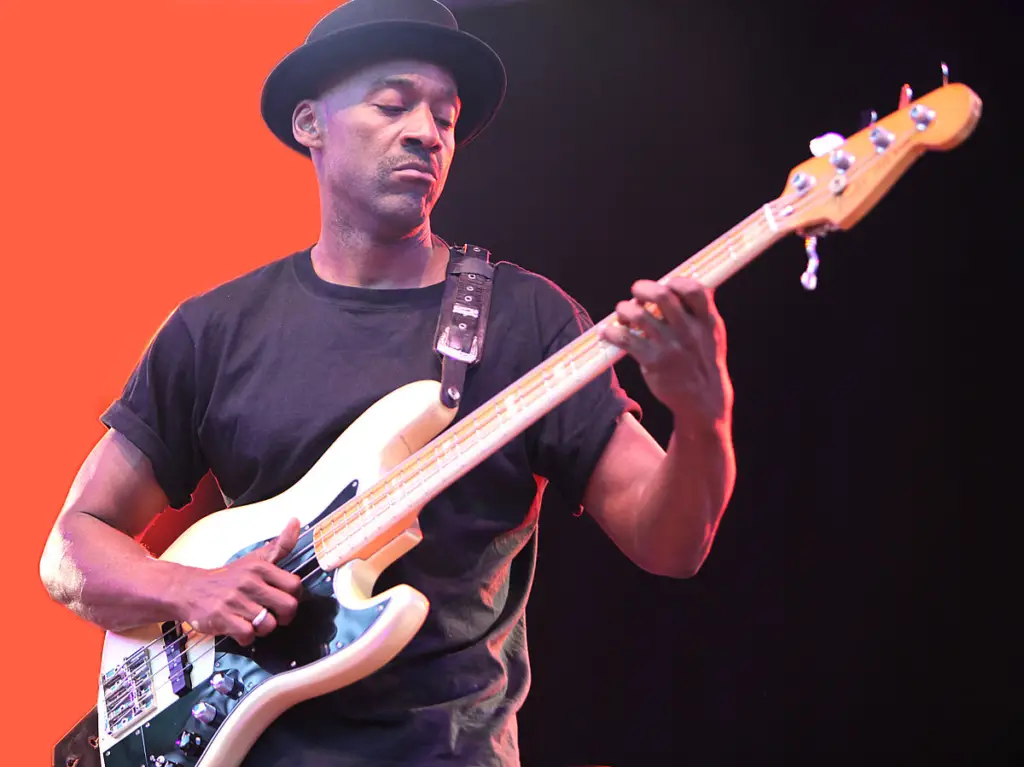
“His technique, the sound he tickles out of his bass, the way he is shifting through genre nuances, the encore improvisations he unleashes, I could keep rambling about this for a while.
And if you’re looking for the mini cherry on top of the regular one on top of the sundae of bass awesomeness (all credit goes to Barney Stinson), go for SMV, a bass supergroup featuring Stanley Clarke and Victor Wooten alongside Maestro Marcus.”
7. Justin Chancellor
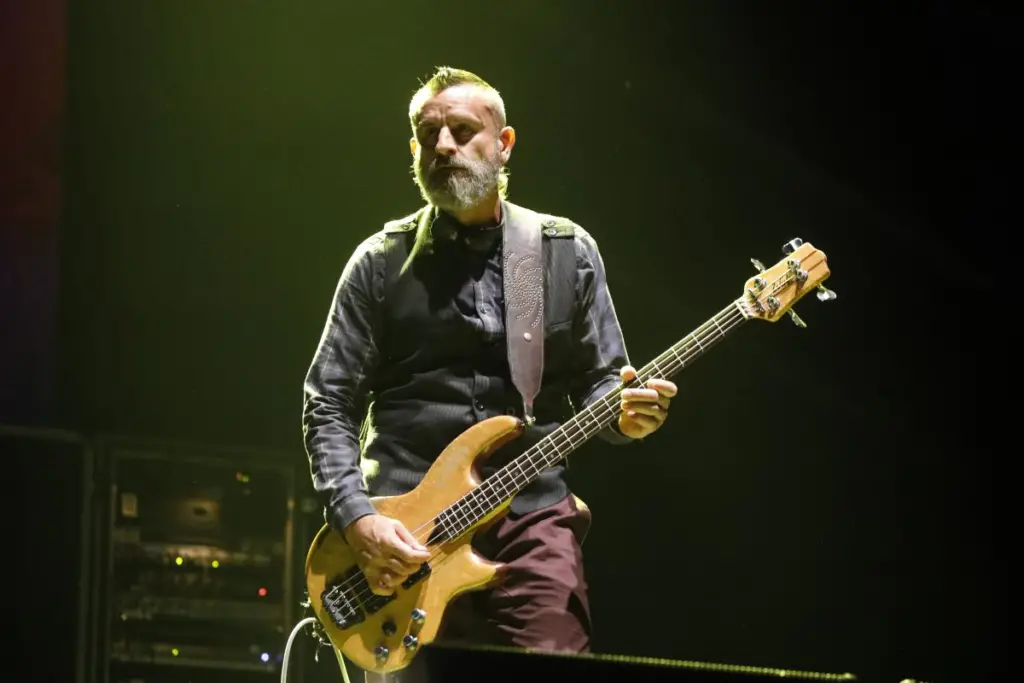
“What makes Justin unique is how he plays the bass. Bass is mostly treated like a background instrument and they just follow the rhythm guitar, but with Justin, he makes the guitars follow him and he stands alone and gives Tool its sound.”
6. Tim Commerford

“Tim Commerford’s metal jazz bass sound was integral to the sound of these tracks. He always knew when to double Tom Morello`s guitar, and when to deviate from it. This ensured that RATM tracks always sounded heavy, groovy, and unique. Thus, Commerford played a major role in the success of the band, which made him one of the most influential bass players of the decade.”
5. Stuart Zender
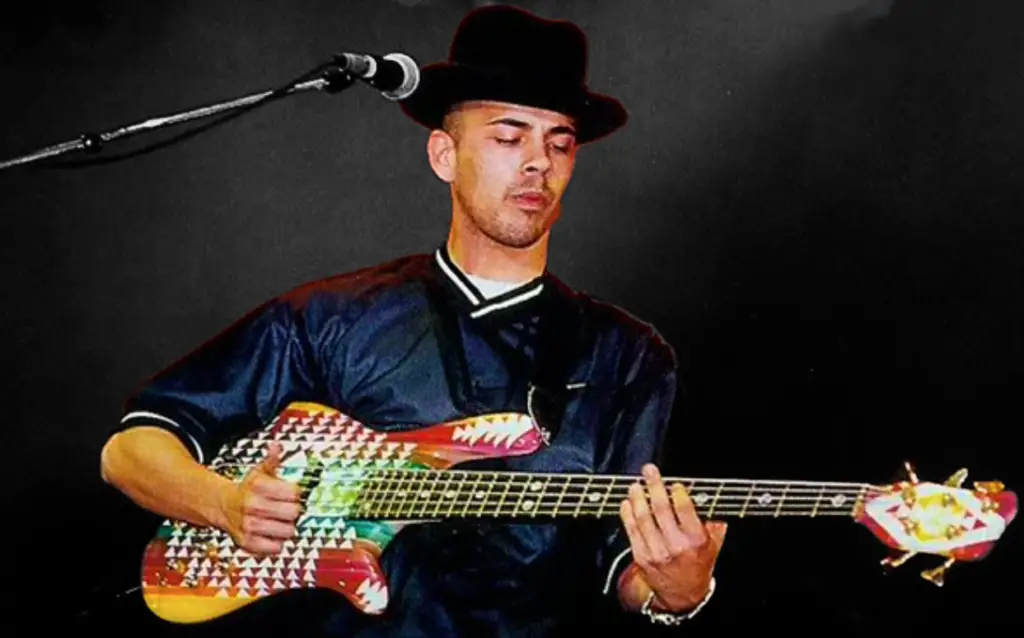
“Despite only being a member of Jamiroquai from 1993 to 1998, Stuart Zender managed to pump out numerous great basslines while in the band. The band released 3 albums during this time. With these came multiple major hits such as “Cosmic Girl”, and “Space Cowboy”. Zender gravitated towards playing basslines that were melodic and funky. This made him pronounced in the mix and was a major part of what made it possible for Jamiroquai to reach the heights that they did.”
4. Steve Harris
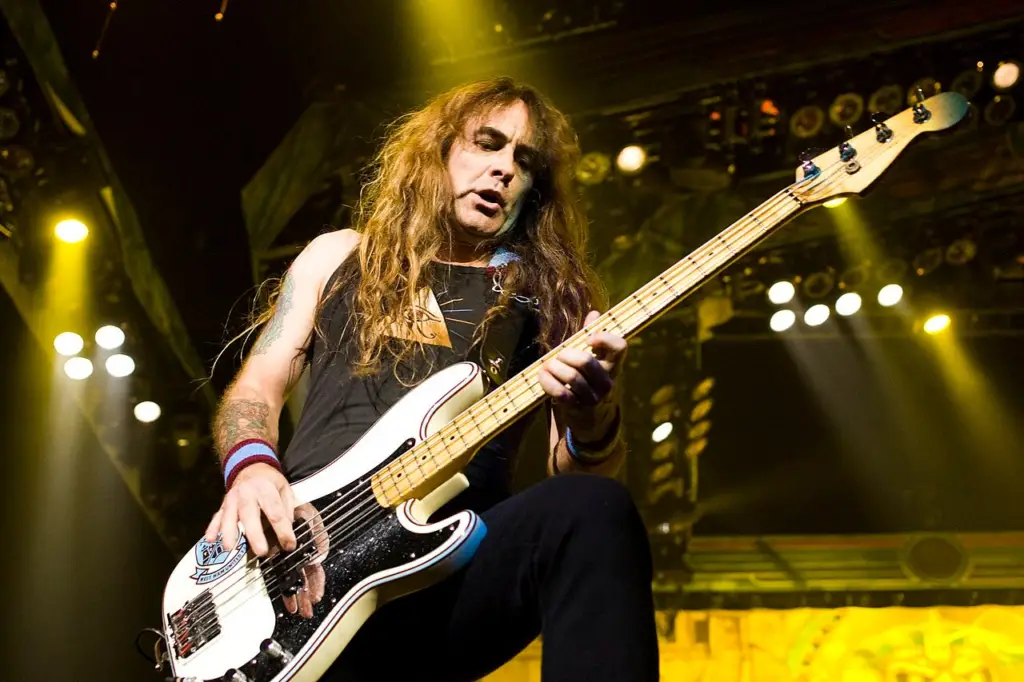
“Not only is he the great composer behind 90% of Iron Maiden’s music and words (either as composer/co-composer) he’s also a damn good and very influential bassist. He has come up with a lot of memorable and incredible bass lines such as the ones in “Wrathchild”, “Powerslave”, “The Phantom of The Opera”, etc. His speed is incredible even though he hardly uses a pick and he’s got a natural knack for making great melodies.”
3. Flea

“Playing with speed is something anyone can do with practice. I mean look how many metal guitarists there are who just shred. The real talent comes when a person can create a feel and atmosphere with their ability. Flea projects life, beauty, and rhythm with his incredibly talented playing. You want fast? “Nobody weird like me. ” “Stone Cold Bush. ” basically any song off mother’s milk is quick by flea, but look at the stuff he does on Californication.”
2. Victor Wooten

“Victor Wooten is a perfect culmination of speed, notation, and technique. His bass solo work is truly mind blowing when you start looking at how many sounds he produces all at the same time. This man deserves a significantly higher rank, but sadly there are too many metal heads only voting for bass players because they play for their favorite metal bands even when you can’t even hear them half the time or if you can they just play the root notes.”
1. Les Claypool
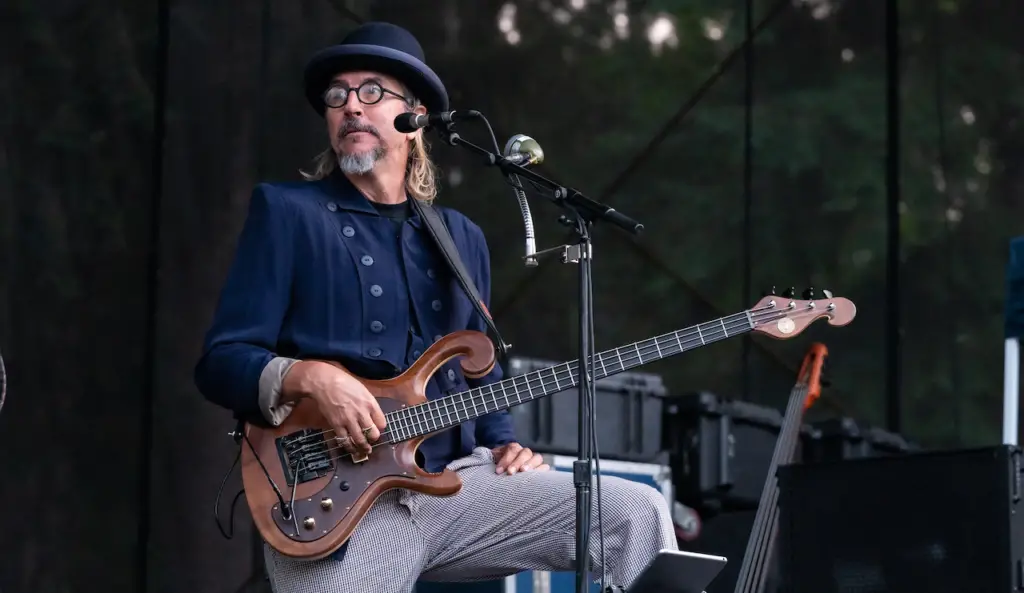
“Each of the others are great in their own way, but when this man has that bass in his hand, it’s like it is part of him. It’s like breathing for us normal humans to him. He can play any genre. Any genre. To be able to play like he does and sing at the same time, let alone play and move around like he does is just amazing. Plus he keeps the whole band together with his playing. Not the other way around where bass is usually more of a backup instrument.”

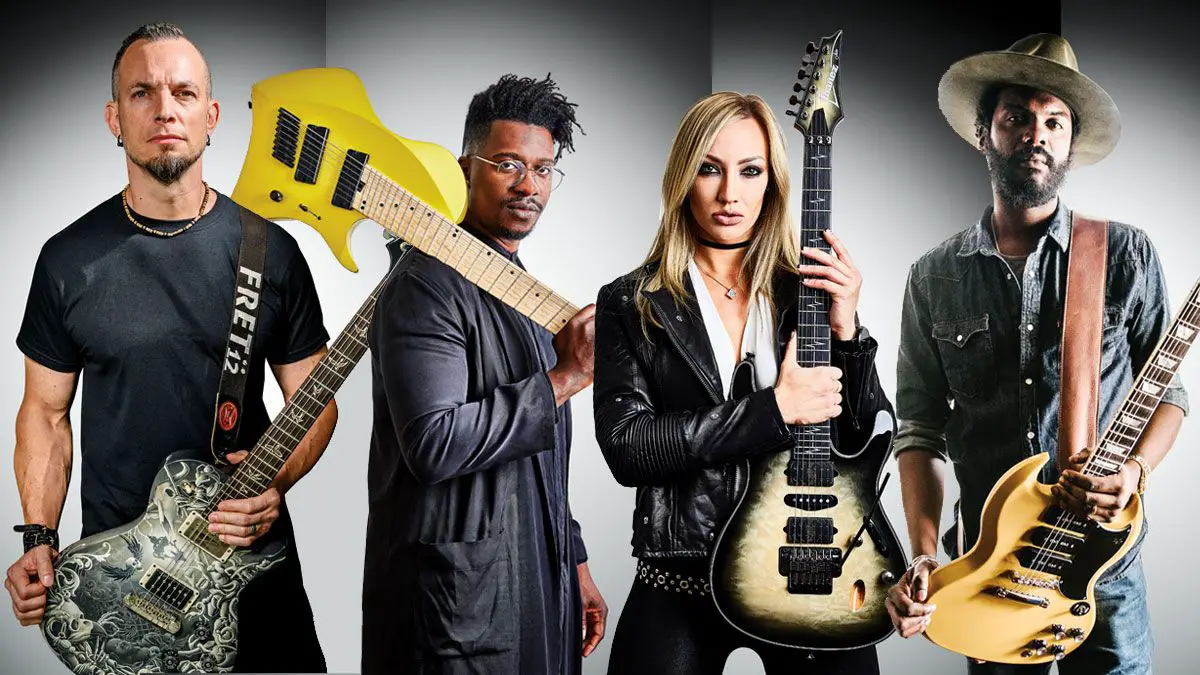
One thought on “The Best 1990s Bassists Of All Time Ranked”
Comments are closed.